
People around the world are widely dissatisfied with democracy in their country and believe that elected officials don’t care what people like them think, according to a new Pew Research Center survey. Global opinion is more divided on the question of whether the state is run for the benefit of all, while people generally agree that voting gives them a say about how the government runs things in their country.
Here are eight charts that show how people around the world see the state of democracy in their country, based on the new report:
This analysis focuses on democratic values and democratic satisfaction in 34 countries. Democracy is one of the core topics we explore in our annual Global Attitudes Survey. This analysis also includes views about elected officials, voting and whether the state is run for the benefit for all people.
For this report, we used data from a survey conducted across 34 countries from May 13 to Oct. 2, 2019, totaling 38,426 respondents. The surveys were conducted face-to-face across Africa, Latin America and the Middle East, and on the phone in the United States and Canada. In the Asia-Pacific region, face-to-face surveys were conducted in India, Indonesia and the Philippines, while phone surveys were administered in Australia, Japan and South Korea. Across Europe, the survey was conducted over the phone in France, Germany, the Netherlands, Spain, Sweden and the UK, but face-to-face in Central and Eastern Europe, Greece Italy, Ukraine and Russia.
Here are the questions used for this report, along with responses, and the survey methodology.
1Globally, people are more dissatisfied than satisfied with the way democracy is working. Across 34 surveyed countries, a median of 52% are dissatisfied with democracy, compared with 44% who are satisfied. Only 32% agree that elected officials care what people like them think; roughly twice as many (64%) disagree. Public opinion is divided on whether the state is run for the benefit of all people (49% agree, 50% disagree). However, many still trust and value the voting process, as a median of 67% agree that voting gives people like them some say about how the government is run.
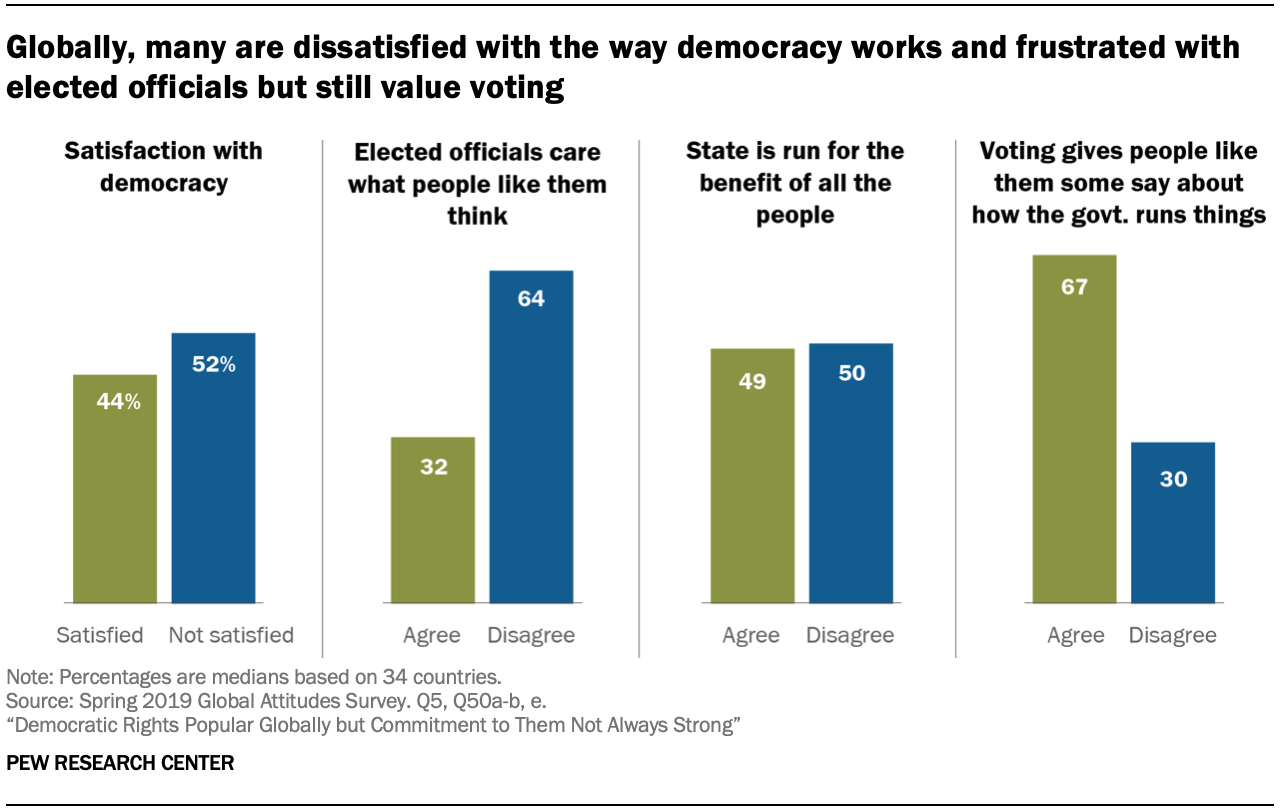
2Dissatisfaction is apparent even in some of the most established democracies. More than half of those surveyed in the UK (69%), the U.S. (59%), France (58%) and Japan (53%) express dissatisfaction with how democracy is working in their country. In Greece, 74% are dissatisfied, the highest share of all countries surveyed. People in Asia-Pacific countries are most satisfied: A median of 58% in the region express satisfaction with how democracy is working in their country.
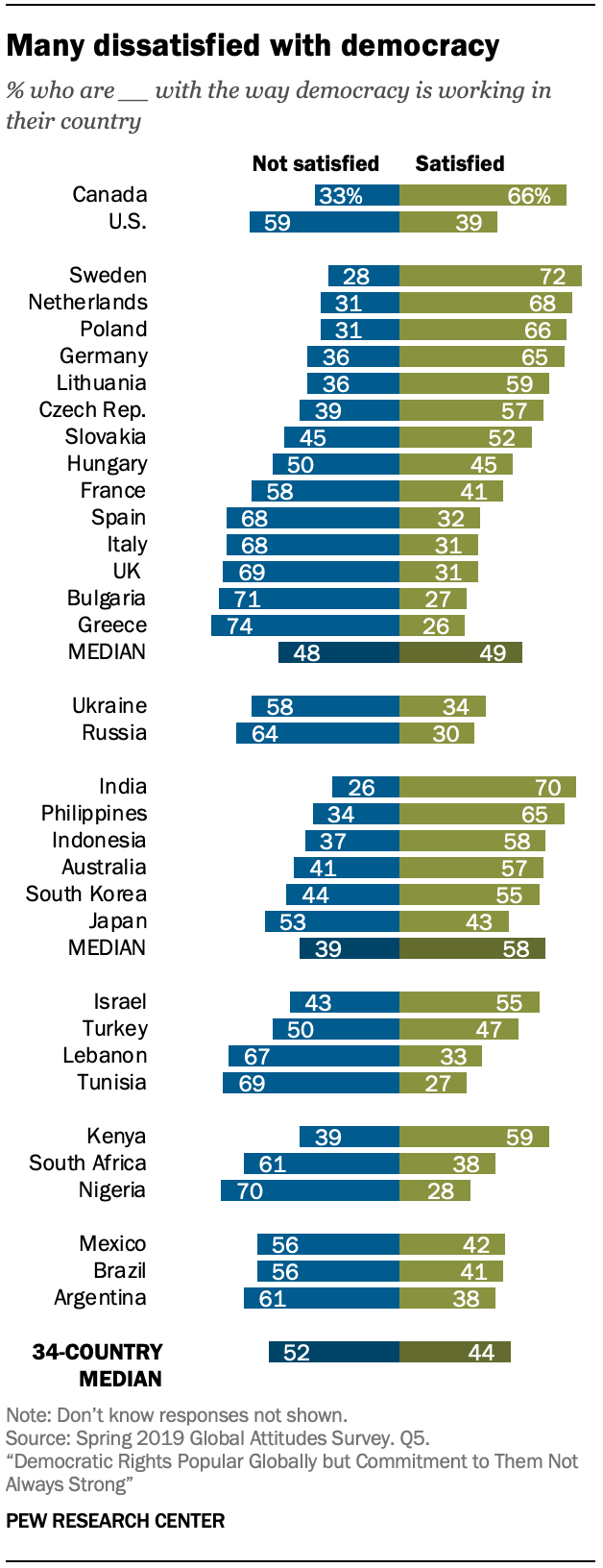
3Dissatisfaction with democracy is higher among those with skeptical views of elected officials. In most countries surveyed, those who think elected officials don’t care about the opinions of ordinary people are more likely to be unhappy with how democracy is working in their country. This is especially clear in Lebanon, where 77% of those who believe elected officials don’t care what people like them think are dissatisfied with democracy – compared with 43% who think elected officials do care.
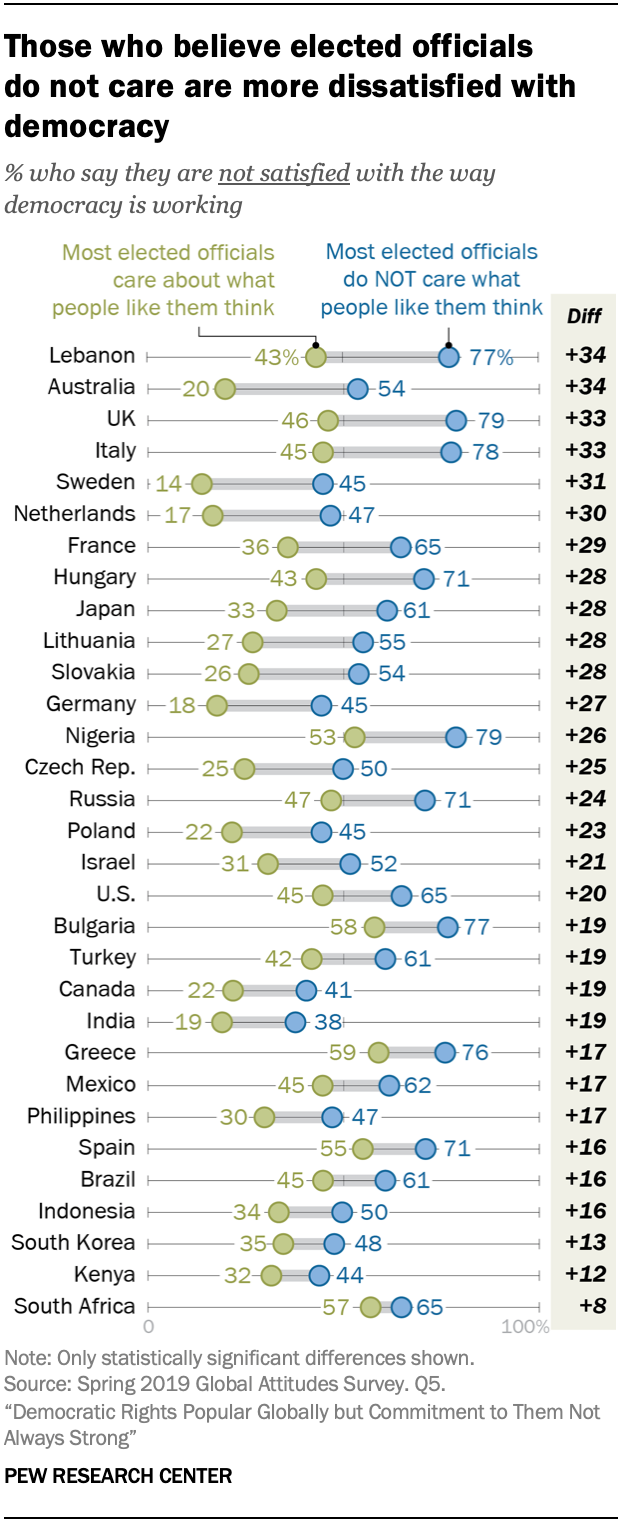
4Eastern Europeans are more likely than Western Europeans to agree that the state is run for the benefit of all. Majorities in four Eastern European countries surveyed – Slovakia (88%), the Czech Republic (79%), Hungary (74%) and Poland (56%) – believe the state is run for the benefit of all. This view is shared by majorities in only two Western European countries, Sweden (73%) and the Netherlands (70%).
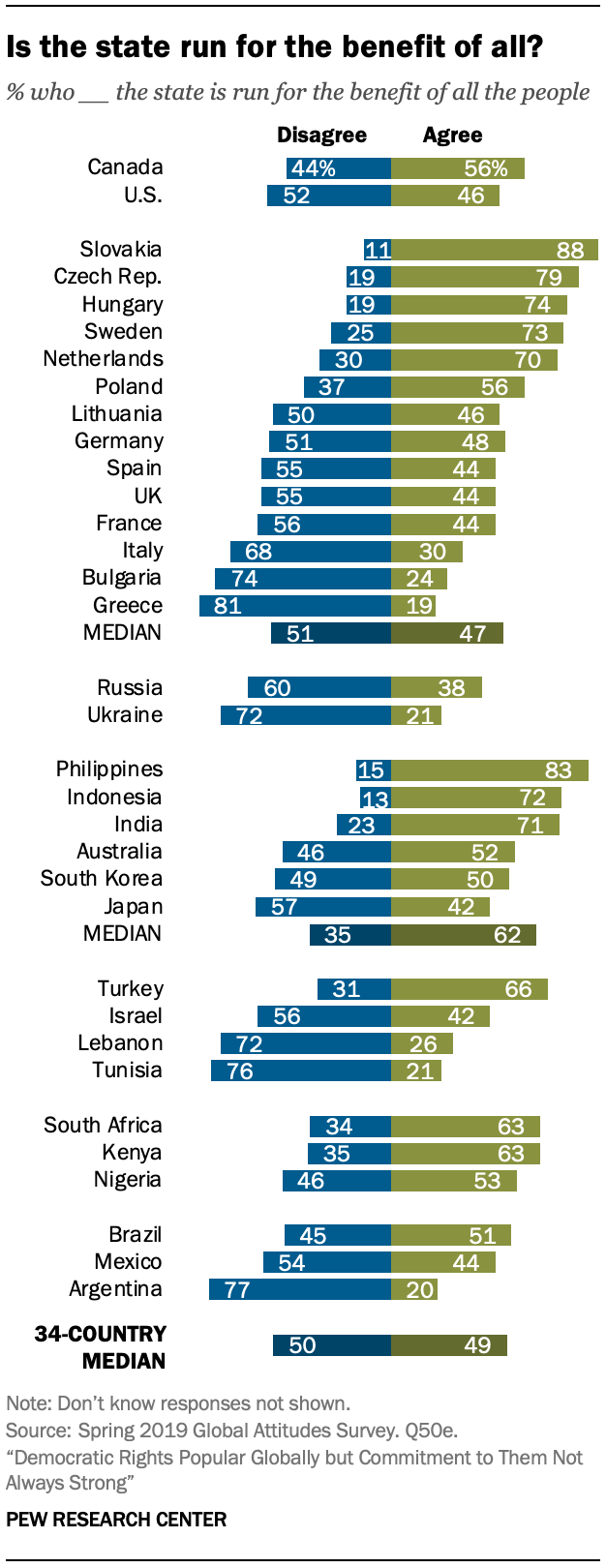
5A fair judiciary and gender equality are seen as the highest democratic priorities worldwide. Majorities in every country surveyed say a fair judiciary is very important, and more than half of people in every country but Nigeria and Tunisia say the same about gender equality. Freedom of religion is more polarizing: It’s the first or second highest rated priority in 11 countries, but the lowest rated in seven others, mostly in East Asia and Europe. The ability of human rights organizations and opposition parties to operate freely are the lowest-rated principles, with global medians of just 55% and 54%, respectively, seeing these priorities as very important.
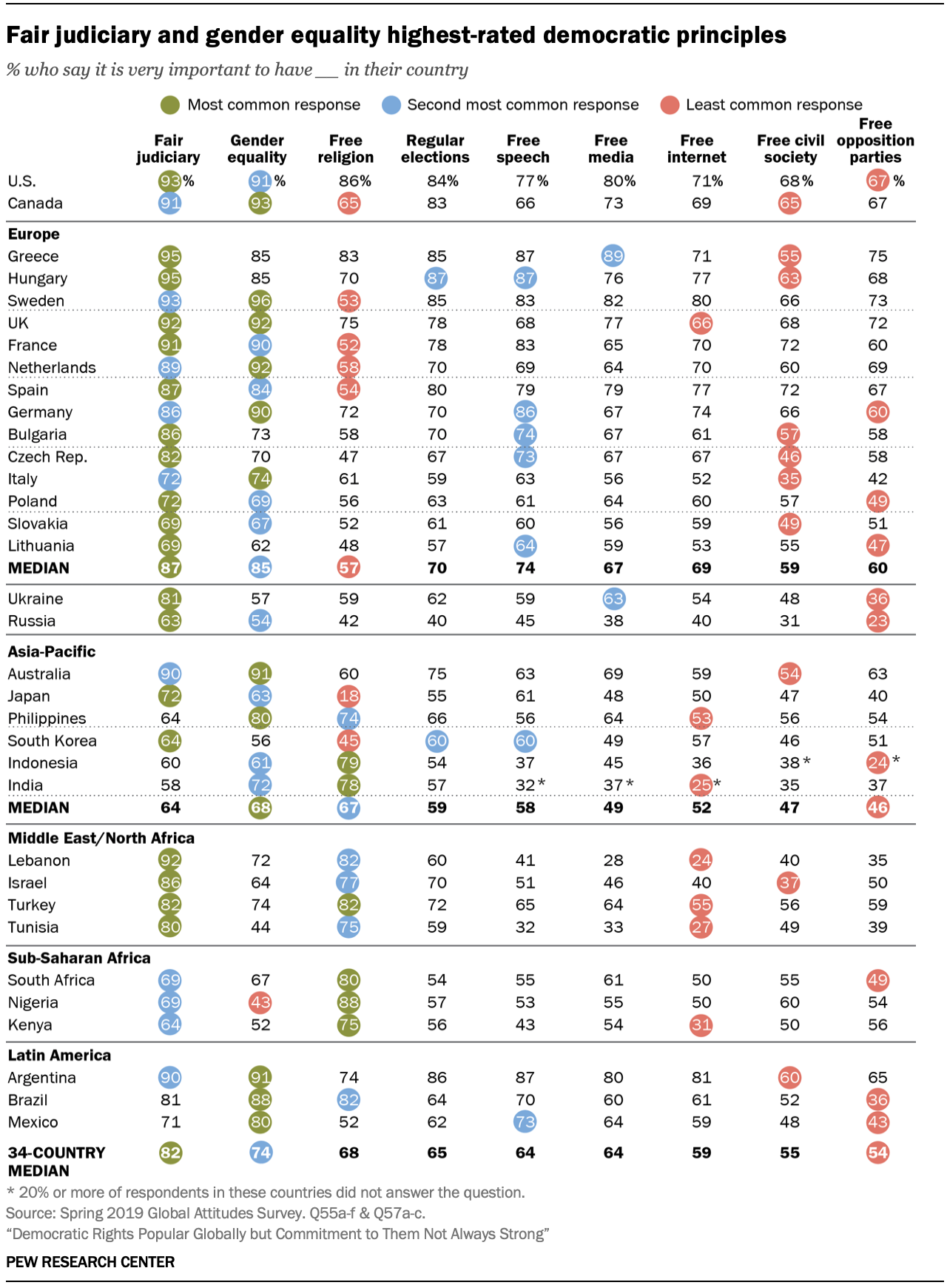
6The perceived importance of freedom of the press varies considerably around the world. Support for free media is highest in Greece, Sweden, the U.S. and Argentina. But in some countries, fewer than half of people say it is very important to for the media to operate without government or state censorship in their country. Just 38% say this in Russia and 28% hold this view in Lebanon.
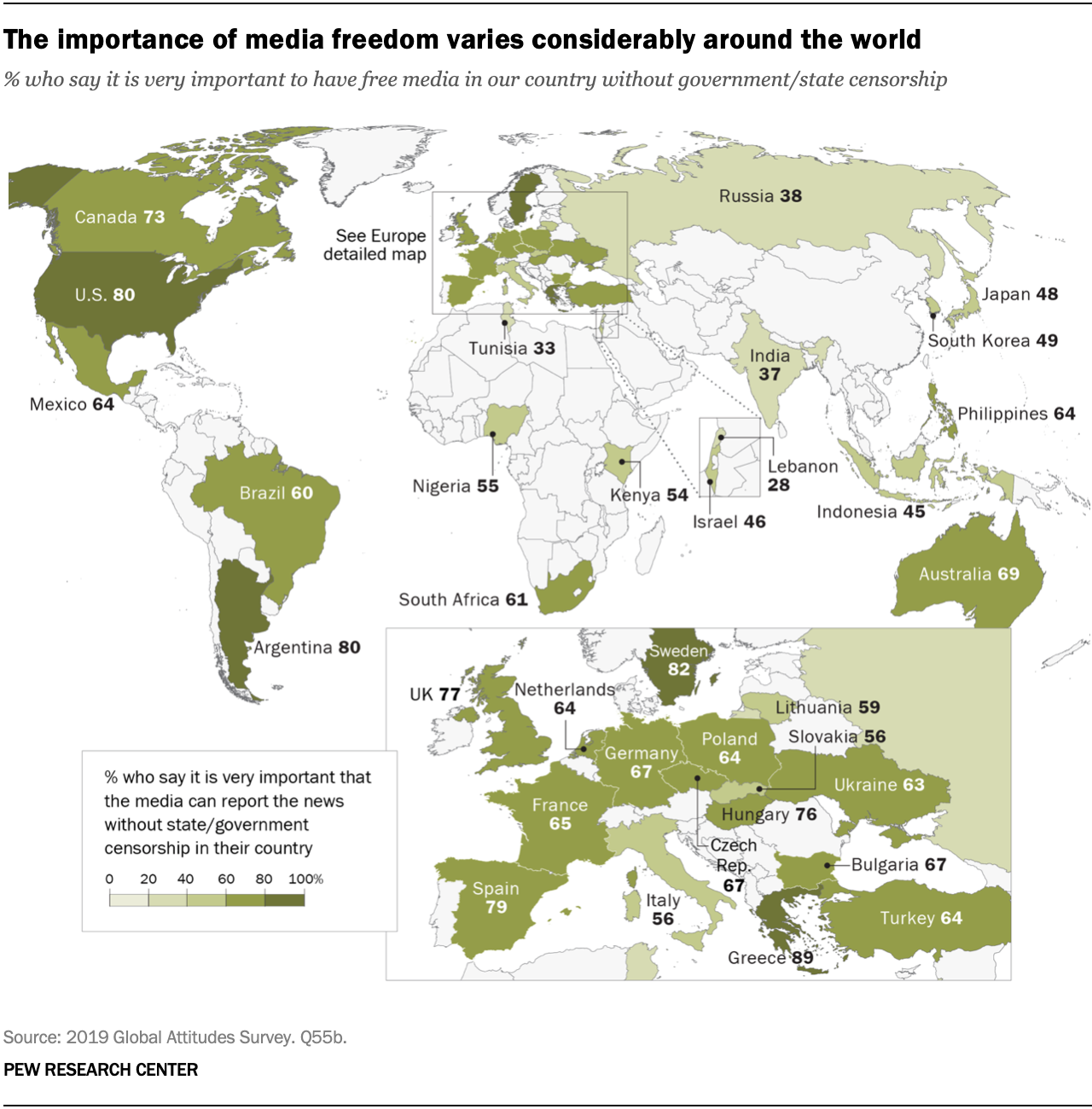
7Religious freedom is not prioritized equally around the world. Across the 34 countries surveyed, a median of 68% say freedom of religion is important in their country, but there are substantial differences by country. People are least likely to see religion as very important in Japan (18%) and most likely to see it that way in Nigeria and the U.S. (88% and 86%, respectively). In both India, a predominately Hindu state, and in Israel, a predominately Jewish state, more than three-quarters say it is very important that people can practice religion freely in their country. In most of the European Union countries surveyed, around 60% or fewer say that freedom of religion is very important in their country.
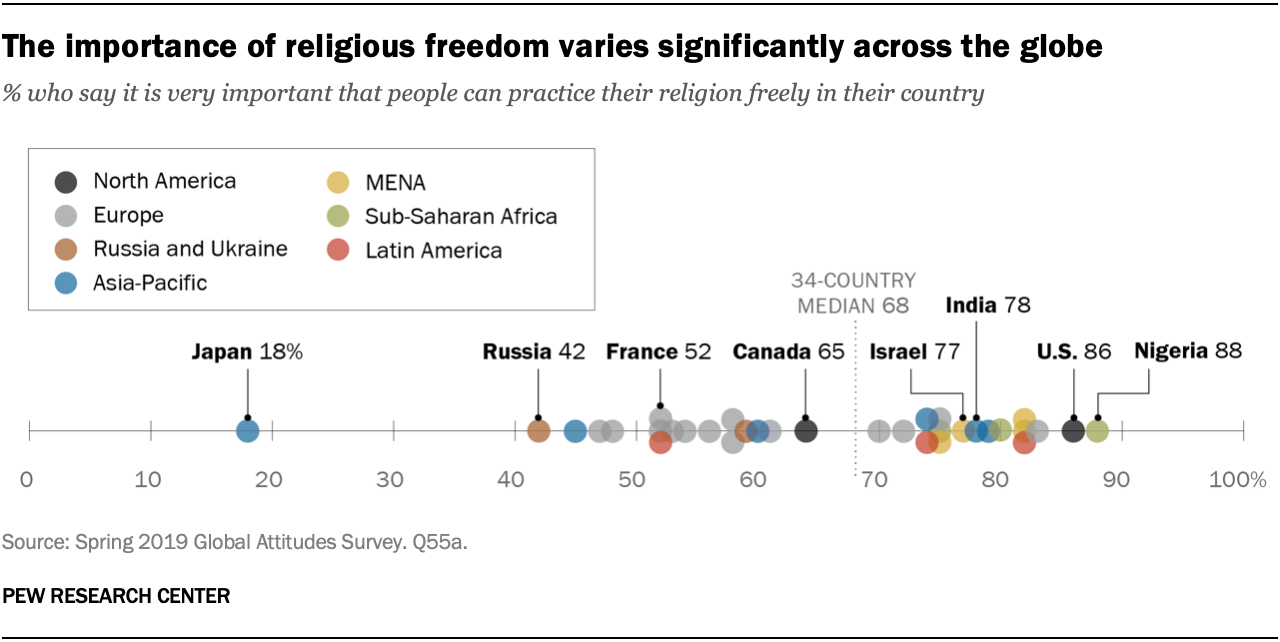
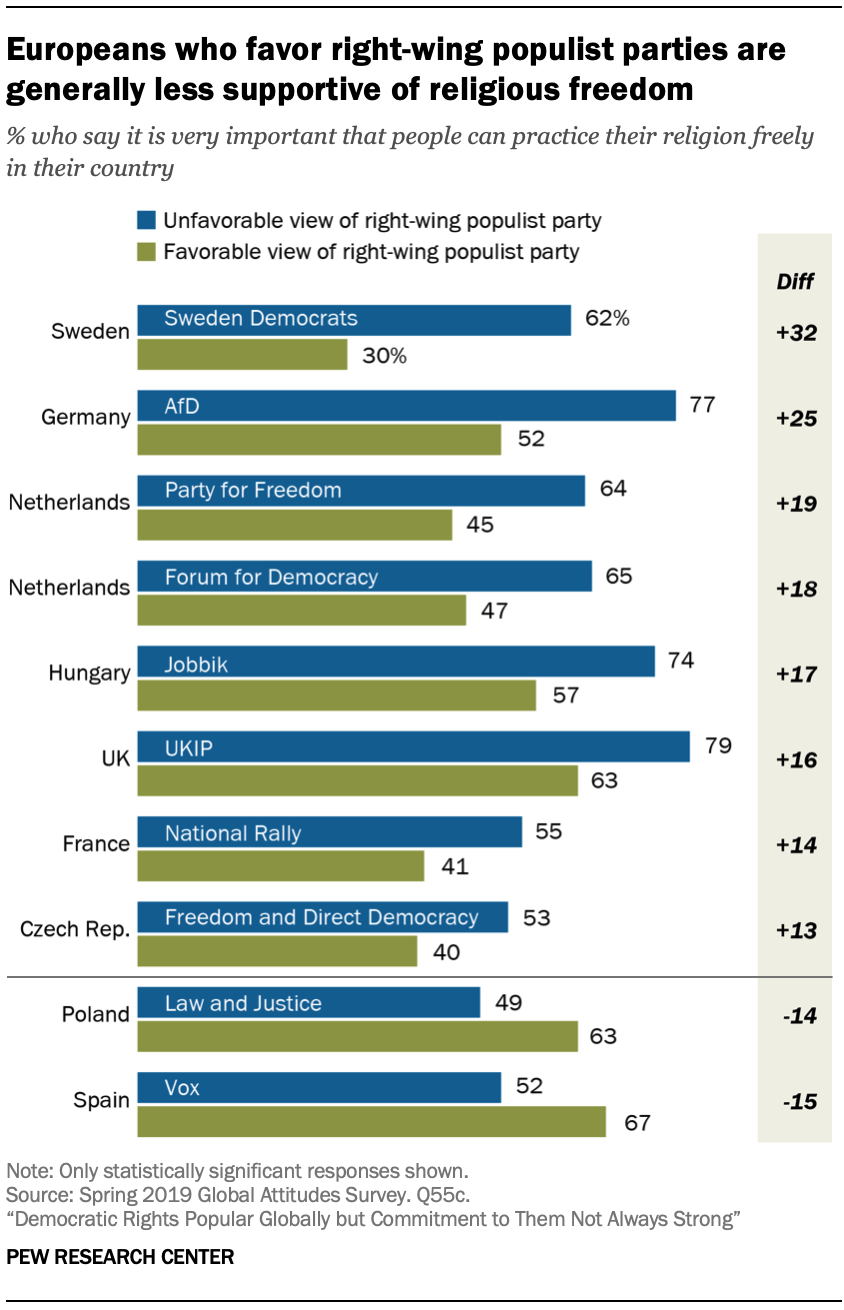 8Those who favor right-wing populist parties in Europe express less support for freedom of religion – with two exceptions. In most cases, Europeans who support right-wing populist parties are less supportive of freedom of religion than those who do not hold favorable views of these parties. For example, only 30% of those who favor the Sweden Democrats party say it is very important that people can practice their religion freely, while 62% of those with an unfavorable view of Sweden Democrats say the same. However, those who hold favorable views of right-wing populist parties in Poland and Spain are more likely to support freedom of religion than those who have unfavorable views of these parties.
8Those who favor right-wing populist parties in Europe express less support for freedom of religion – with two exceptions. In most cases, Europeans who support right-wing populist parties are less supportive of freedom of religion than those who do not hold favorable views of these parties. For example, only 30% of those who favor the Sweden Democrats party say it is very important that people can practice their religion freely, while 62% of those with an unfavorable view of Sweden Democrats say the same. However, those who hold favorable views of right-wing populist parties in Poland and Spain are more likely to support freedom of religion than those who have unfavorable views of these parties.
Correction: A previous version of this post incorrectly listed India among established democracies where people are most dissatisfied with democracy. Figures were correct in the chart “Many dissatisfied with democracy”: 70% in India are satisfied with the way democracy is working in their country.
Note: Here are the questions used for this report, along with responses, and the survey methodology.



